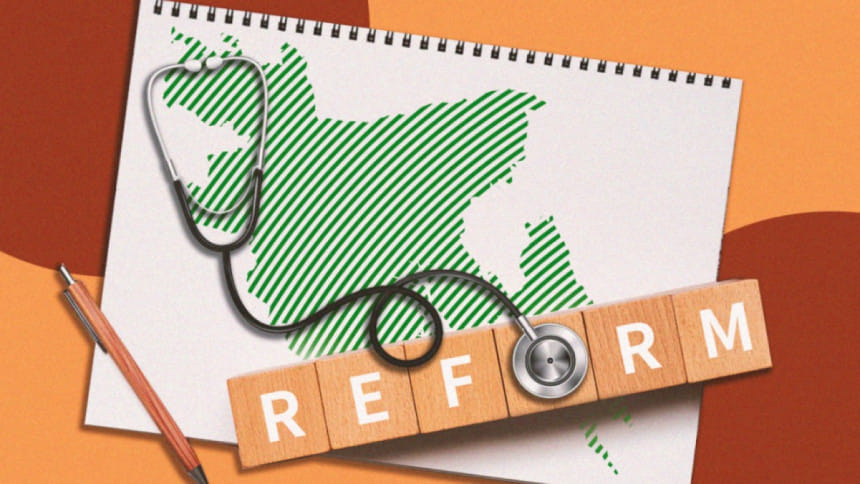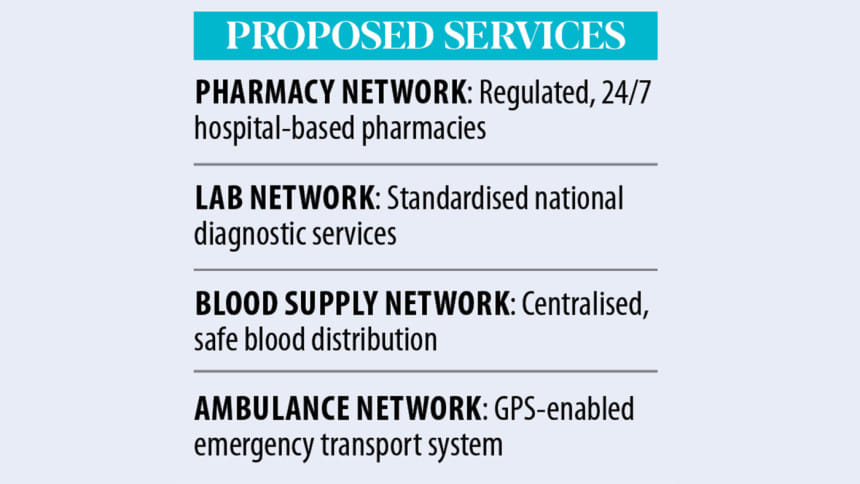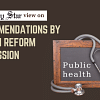Health reform: Commission proposes four national health support networks

The Health Sector Reform Commission has recommended building national networks for four vital healthcare support services to ensure the availability, quality, and coverage of health services.
The four networks are: the National Pharmacy Network (NPN), National Diagnosis Laboratory Network, National Blood Supply Network, and National Ambulance Network.

The commission, which submitted its report last week, said each service would be interconnected and managed nationwide through its own integrated digital platform based on specified standards, ensuring that people can access them easily, quickly, and reliably.
The recommendations come at a time when service seekers face numerous hurdles in accessing these essential services.
For example, there are around four lakh registered pharmacies in the country, and 220 pharmacies, on average, receive approval daily, according to the commission's report.
However, most of these pharmacies operate without trained pharmacists, leading to the unregulated sale of antibiotics, widespread drug misuse, and an uncontrolled market, it said.
This situation jeopardises medicine quality, treatment efficacy, and patient safety, it added.
The commission recommended that a National Pharmacy Network be established by setting up 24-hour, in-house licensed pharmacies in all government hospitals, primary healthcare centres, and general practitioner (GP) clinics across the country.
The initiative aims to ensure that poor and marginalised populations receive essential medicines free of cost or at subsidised prices.
These pharmacies must maintain an adequate stock of medicines according to the national essential drug list, and the services would be applicable for both inpatients and outpatients.
They would be operated by trained pharmacists, who would provide guidance on medicine use and promote rational consumption.
By digitally tracking the supply and distribution of medicines, it would be possible to forecast future demand and prevent theft and wastage.
Referring to similar systems in Sri Lanka and Thailand, the commission said implementation of such a system would reduce reliance on unregulated private pharmacies, increase transparency in the supply chain, and significantly enhance the cost-effectiveness of government expenditure on medicine supply.
The commission also emphasised the need to establish a centrally managed National Ambulance Service Network across the country, which would ensure timely, high-quality, and equitable emergency transport services from urban centres to remote areas.
This network would include GPS-enabled vehicles, a central call centre, and a tiered fleet system, funded through government allocations, corporate social responsibility (CSR) funds, and voluntary contributions, it said.
Coverage could be expanded through public-private partnerships based on a social business model, building a financially sustainable structure, it added.
Referring to success stories in India and Rwanda, the commission said that if such a system is introduced in the country, it would reduce delays in accessing care and deliver emergency services to all segments of the population.
The initiative would lower out-of-pocket expenses associated with private transport — paving the way for a more sensitive and inclusive healthcare system, it added.
Although the commission recommended establishing a National Diagnosis Laboratory Network and a National Blood Supply Network, it did not provide details about these initiatives.

 For all latest news, follow The Daily Star's Google News channel.
For all latest news, follow The Daily Star's Google News channel. 





Comments